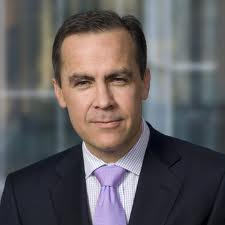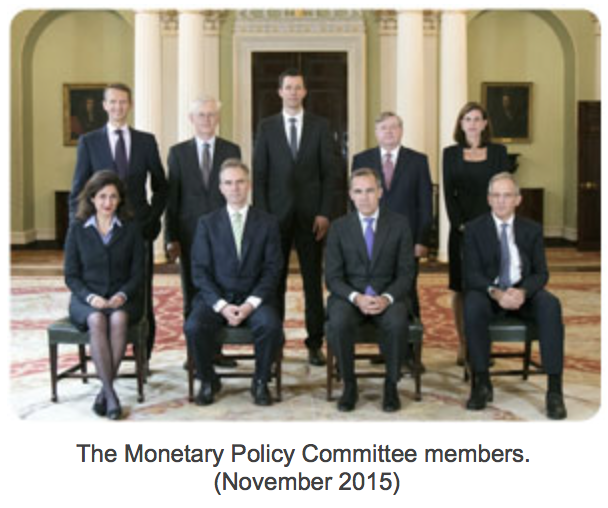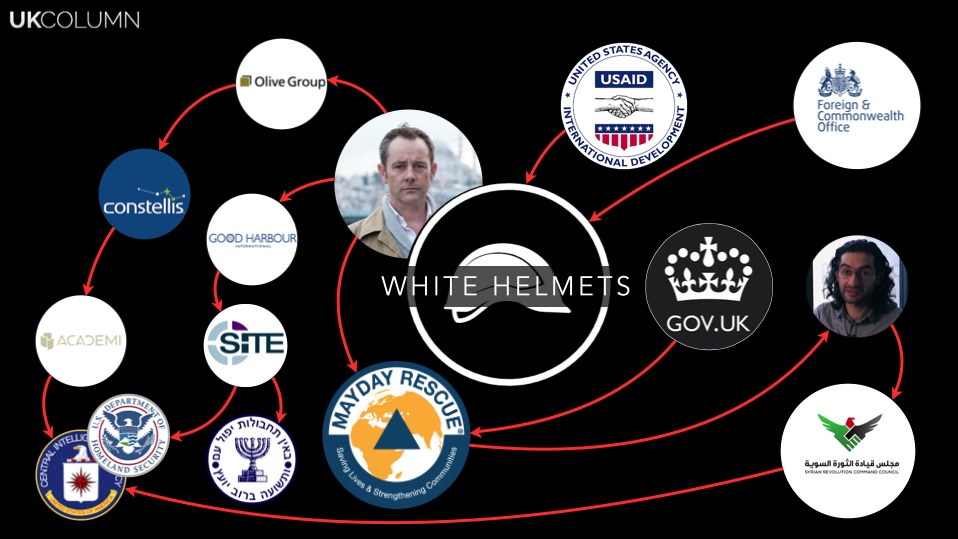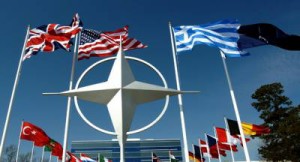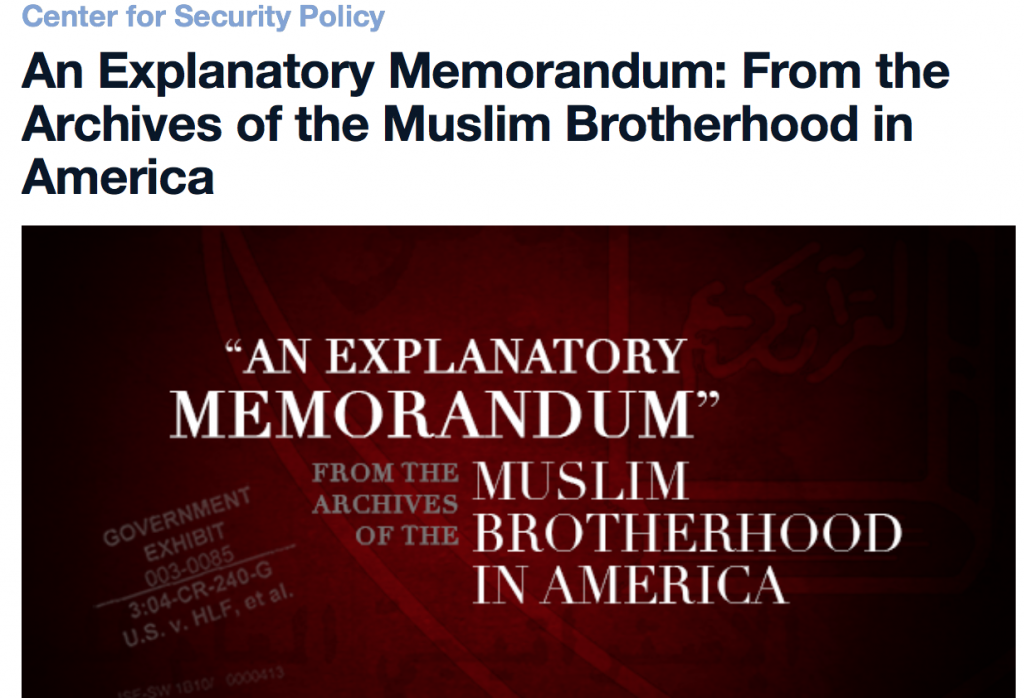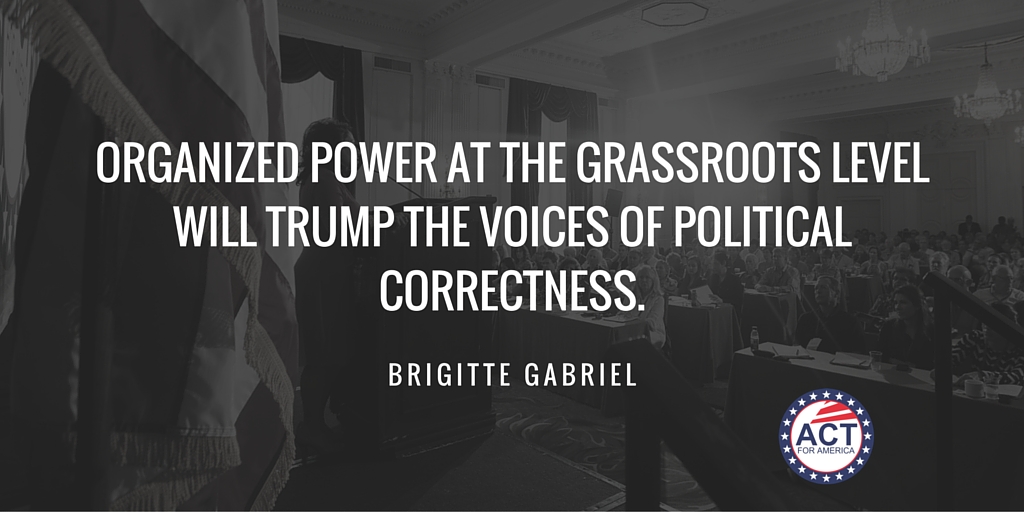We discuss in detail with Dr. Michael Hudson, the concept of debt deflation; housing, student loan and automobile debt; the oil market; the stock market; negative interest rates; currencies; and the shrinking of the real economy.
Most people think of the economy as producing goods and services and paying labor to buy what it produces. But a growing part of the economy in every country has been the Finance, Insurance and Real Estate (FIRE) sector, which comprises the rent and interest paid to the economy’s balance sheet of assets by debtors and rent payers. More and more money is being extracted from of the production and consumption economy to pay the FIRE sector. That’s what causes debt deflation and shrinks markets. If you pay the banks, you have less to spend on goods and services.
I’m Bonnie Faulkner. Today on Guns and Butter, Dr. Michael Hudson. Today’s show: The Slow Crash.
Dr. Hudson is a financial economist and historian. He is President of the Institute for the Study of Long-Term Economic Trends, a Wall Street financial analyst and Distinguished Research Professor of Economics at the University of Missouri, Kansas City, as well as at Peking University. His 1972 book, Super-Imperialism: The Economic Strategy of American Empire, is a critique of how the United States exploited foreign economies through the IMF and World Bank. His latest book is Killing the Host: How Financial Parasites and Debt Destroy the Global Economy. Due out soon, J Is for Junk Economics. Today we discuss in detail the concept of debt deflation; housing, student loan and automobile debt; the oil market; the stock market; negative interest rates; currencies; and the shrinking real economy.
* * * * *
Bonnie Faulkner: Michael Hudson, welcome.
Michael Hudson: It’s good to be here again, Bonnie.
Bonnie Faulkner: You have indicated that as a result of United States and European debt deflation, there is an economic slowdown. First of all, how would you define deflation?

Michael Hudson
Michael Hudson: There are two definitions of deflation. Most people think of it simply as prices going down. But debt deflation is what happens when people have to spend more and more of their income to carry the debts that they’ve run up – to pay their mortgage debt, to pay the credit card debt, to pay student loans.
Today, people are having to spend so much of their money, to acquire a house and to get an education that they don’t have enough to spend on goods and services, except by running into yet more debt on their credit cards and other borrowings.
The result is that markets are slowing down. Deflation means a slowdown of income growth. Markets shrink, new capital investment and employment also taper off, so wages decline. That is what’s happening as deliberate policy in Europe and the United States. Falling or stagnant prices are simply the result of having less income to spend.
Bonnie Faulkner: Well, thank you for that, because that is confusing, because I think a lot of people consider deflation simply a decrease in price. Does that have anything to do with it?
Michael Hudson: The price decline is a result of having to pay debts. That drains income from the circular flow between production and consumption – that is, between what people are paid when they go to work, and the things that they buy. Deflation is a leakage from this circular flow, to pay banks and the real estate, called the FIRE sector – finance, insurance and real estate. These transfer payments leave less and less of the paycheck to be spent on goods and services, so markets shrink. Some prices for some products go down when people can’t afford to buy them anymore. There are more sales, there’s shrinkage, but especially incomes go down. Real incomes in the United States have been drifting down for 30 years because there is slower and slower market demand.
That’s why Bernie Sanders and Donald Trump are getting so many votes. When Hillary Clinton said she’s going to do just what Obama does and we’re going to continue to recover, most people know that we’re not recovering at all. We’re shrinking.
Bonnie Faulkner: So then, deflation has more to do with disposable income than it does with prices.
Michael Hudson: That’s correct, and that’s what is rarely pointed out. People tend to think that paying a debt is like going out and buying a car, buying more food or buying more clothes. But it really isn’t. When you pay a debt to the bank, the banks use this money to lend out to somebody else or to yourself. The interest charges to carry this debt go up and up as debt grows. As you have to pay more interest and amortization on what you owe, you’re left with less and less money to buy goods and services – unless you borrow even more and go further into debt.
So basically, unless you’re willing to write down debts and save the economy, you’re going to have deflation and a steady drain in purchasing power – that is, shrinking markets.
Bonnie Faulkner: So then the relationship between debt and deflation: Increasing debt creates more deflation. Would you say that’s the case?
Michael Hudson: Yes. In the 1930s, Irving Fisher wrote an article “The Debt Deflation theory of the Great Depression,” that established the obvious mathematical fact that paying debt service to banks leaves less income to buy goods and services.
Bonnie Faulkner: Oftentimes people wonder, what’s wrong with deflation? We’re always hearing about worries about inflation, but what is the danger in deflation, as you’ve defined it?
Michael Hudson: Markets shrink and unemployment goes up. Wages go down and living standards decline. When we say “people worry” about inflation, it’s mainly bondholders that worry. The labor force benefitted from the inflation of the ‘50s, ‘60s and ‘70s. What was rising most rapidly were wages. Bond prices fell steadily during these decades. Stocks simply moved sideways.
Inflation usually helps the economy at large, but not the 1% if wages rise. So the 1% says that it is terrible. They advocate austerity and permanent deflation. And the media say that anything that doesn’t help the 1% is bad.
But don’t believe it. When they say inflation is bad, deflation is good, what they mean is, more money for us 1% is good; we’re all for asset price inflation, we’re all for housing prices going up, and we’re all for our stock and bonds prices going up. We’re just against you workers getting more income.
Bonnie Faulkner: Right, because inflation puts more money, I guess, in circulation and we get more as a worker, for instance-
Michael Hudson: Well, if the economy is growing, people want to employ more workers. If you hire more labor, wages go up. So the 1% always wants to keep unemployment high – it used to be called the reserve army of the unemployed. If you can keep unemployment high, then you prevent wages from rising. That’s what’s happened since the 1970s here. Real wages have not risen, but the price of the things that the 1% owns has risen – stocks, bonds, trophy art and things like that.
Bonnie Faulkner: So if I were to ask you what is wrong with deflation generally, would the answer ten be that it shrinks the economy?
Michael Hudson: That’s exactly it – lower wages, lower living standards, and more money siphoned off to creditors at the top of the pyramid. When there’s deflation, it means that although most markets are shrinking and people have less to spend, the 1% that hold the 99% in debt are getting all the growth in wealth and income. Deflation means that income is being transferred to the 1%, that is, to the creditors and property owners.
Bonnie Faulkner: Well, Michael, it sounds like in your definition of debt deflation that you are describing exactly what’s going on here in the United States and also in Europe.
Michael Hudson: Yep, that’s exactly what’s happening. It’s what I describe in Killing the Host.
Bonnie Faulkner: All sectors of the economy are certainly not deflating, that is if we’re going to talk about prices narrowly. What about the housing market? Are we looking at a housing bubble?
Michael Hudson: Certainly not a bubble yet. You still have 25% of American homes in negative equity – that is, when the mortgages are higher than the market value of the housing. So for many people, the mortgages they took out before 2008 are so high that they would be better off walking away from their houses. That is called “jingle mail,” returning the keys to the bank and saying, “You can have the house. I can buy the house next door that’s just like this for 20% less, so I’m going to save money and switch.” That’s what someone like Donald Trump or a real estate investor would do. But the banks are trying to convince the mortgage debtors, the homeowners, not to act in their own self-interest.
Bonnie Faulkner: Yes. I live in Northern California, in the Bay area, so I guess this is an exception to what’s going on overall across the country.
Michael Hudson: That’s a rich area, and houses in expensive areas are going up, but not as fast as they used to. Luxury housing in gated communities is going up. But for blue-collar-income neighborhoods and even middle-class neighborhoods, there has not been much of a recovery. It’s good news for burglar-alarm manufacturers, because crime is going up.
Bonnie Faulkner: It looks like the Bank of America is going back into the subprime loan market, albeit in league with U.S. Government. What do you make of Bank of America’s new Affordable Loan Program, which offers 3%-down mortgages with no mortgage insurance, and partners with Freddie Mac in something called the Self-Help Ventures Fund?
Michael Hudson: This reflects the degree to which the banks have been able to capture the Federal Housing Authority and Freddie Mac as well as the Federal Reserve. They are all trying to re-inflate the re bubble. The myth is that if housing prices go up, Americans will be richer. What banks – and behind them, the Federal Reserve – really want is for new buyers to be able to borrow enough money to buy the houses from mortgage defaulters, and thus save the banks from suffering from more mortgage defaults.
Actually, high housing prices don’t help the economy. They raise the cost of living. Everybody would be better off if they could buy housing for only, let’s say, a carrying charge of one-quarter of their income. That used to be the case 50 years ago. Buyers had to save up and make a higher down payment, giving them more equity – perhaps 25 or 30 percent. But today, banks are creating enough credit to bid up housing prices again.
The aim of promoting low down payments is to push prices back up so that fewer houses are going to be in negative equity and fewer people are going to walk away from the mortgages. That will save the banks from taking a loss on their junk mortgage loans.
Bonnie Faulkner: The FHA is offering subprime loans, as well. Isn’t that right?
Michael Hudson: For 3.5% downpayment. This was unheard of when I first went to work on Wall Street in 1961. I was working for the Savings Banks Trust Company – the central bank for New York State savings banks, which were the main mortgage lenders. At that time the rule of thumb was that home buyers needed a 30% down payment (equity), so that when the banks made a loan, the property would have to go down by 30% to make the bank in trouble. That was the homeowner’s equity that was at risk. It provided security for the banks.
Now, suppose that a homeowner puts down only 3% of their own money or 3.5% for the FHA. That means if prices go down by only 3%, the house will be in negative equity and it would pay the homeowner just to walk away and say, “The house now is worth less than the mortgage I owe. I think I’m just going to move out and buy a cheaper house.” So it’s very risky when you have only a 3% or 3.5% equity for the loan. The bank really isn’t left with much cushion as collateral.
Now, the banks argue, “Wait a minute. We’re making these loans to people with good credit ratings, and they have enough money to pay, even if the house’s price goes down.” But the banks are taking a risk that the homeowner is going to be naïve enough not to walk away and leave the bank holding a bad debt, so it’s very risky. It’s a degree of risk that no bank would have taken prior to Alan Greenspan’s tenure at the Fed.
Bonnie Faulkner: Why would the United States government be encouraging these risky loans?
Michael Hudson: Because the government is dominated mainly by the financial, insurance and real estate lobby, the FIRE sector. It’s called regulatory capture. The real estate interests and banks are in a kind of symbiosis. They’re the largest-growing part of the economy. This is the sector that backs the political campaigns of senators, presidents and congressmen, and they use this leverage to make sure that their people dominate the Federal Reserve, Treasury and the federal housing agencies.
Bonnie Faulkner: Just for clarification, why would the banks be pushing these risky loans if there’s a high degree of default?
Michael Hudson: When you say “bank,” a bank is a building, a set of computers and chairs and things. The bankers are the people running these banks. They’re the chief officers, and they push the loans because they don’t care if they go bad. For one thing, they may package these bad loans and sell them off to gullible institutional investors. If bankers can push the loans and make more profits for the bank, they get paid higher bonuses. They often also get stock options. If the bank goes under, they get to keep all of these salaries and options – and the government will bail out the bank. These guys will take their money and run, which is pretty much what they’re doing now. I think we’re in the take-the-money-and-run stage of the economy. So the banks may go under, but the bankers, who make the policy, clean up.
Bonnie Faulkner: Thank you for that distinction. What about automobile loans? You’ve referred to them as “junk loans.” How do you mean?
Michael Hudson: There’s been a large increase in loans to people to buy autos to get to work. Just like they’ve lowered lending standards on making home mortgages, they’ve lowered standards on auto loans. So default rates are going up, and so are repossessions of autos. It’s become a common sight in many neighborhoods. So banks are losing on defaults on auto loans, just as defaults are happening more and more on student loans, and are still going on in the mortgage market.
Bonnie Faulkner: You mentioned the student loan debt. How big is it?
Michael Hudson: It’s about $1.3 trillion by now. The government has guaranteed this student loan debt, so banks are eager to make loans to students. Often they’ll get the parents to countersign. The banks make money whether the students pay or not because the government has promised to pay the banks if the loans go bad. And defaults lead to lucrative penalty fees for the banks, which the government also guarantees.
The fact that you have government-guaranteed student loans has created a whole new sector in the American economy that didn’t really exist before – private for-profit universities that sell junk degrees that don’t help the students. They promise the students, “We’ll help you get a better job. We’ll arrange a loan so that you don’t have to pay a penny for this education.” Their pet bank gets them the government-guaranteed loan, and the student may get the junk degree, but doesn’t get a job, so they don’t pay the loan. The government pays the bank anyway, at a pretty high interest rate, 7% or 8%, plus all the penalties that banks charge. This makes student loans a way to organize a government giveaway to the banks and to the junk universities they subsidize.
Bonnie Faulkner: Is it true that one cannot declare bankruptcy on student debt?
Michael Hudson: That’s right. Someone in Congress said, “We want to make sure the government can collect and the taxpayer doesn’t lose on this. So these loans are not subject to being written down by a bankruptcy proceeding.” Normally, if someone goes bankrupt, you wipe out the debt and get a fresh start. But that’s not permitted with student loans. So the effect is to impoverish many graduates with very high debts.
Just like a house is worth whatever a bank’s going to lend against it, an education is worth whatever the bank is going to lend the student to pay the university. So the availability of government-guaranteed student loans has vastly inflated the cost of education, just like it’s inflated the cost of housing.
But in housing you have jingle mail and you can walk away and leave the bank holding the bag. In the case of student loans, the debt follows you through life, and the banks or government will turn it over to collection agencies that are not very nice people and can do all sorts of harassing things to you. It’s becoming a nightmare.
Bonnie Faulkner: I also have read that with regard to student loans they can attach your salary. They can even attach your Social Security check.
Michael Hudson: Even the Social Security – mainly for parents who have countersigned for loans for their children. Their Social Security can be sequestered and attached by collection agencies. Most of the defaults are on junk education, the private for-profit diploma mills.
Education is something that should not be organized on a for-profit basis, because in that case its purpose is not really to provide an education. It’s not to teach students how to get better work, but how to provide banks with a free giveaway opportunity from the government, by making junk loans that are defaulted on. The effect may be to wreck the futures of the graduates that fall for the false promises that are being made.
Bonnie Faulkner: The default rate on these student loans is pretty high, isn’t it?
Michael Hudson: High and rising.
Bonnie Faulkner: Then there’s also, I noticed, something called a workout where they adjust your payment length and other factors to keep you from defaulting.
Michael Hudson: They try to prevent defaults because if banks show higher default rates, this gets the regulators to say, “You’re going to need higher capital reserves against these default rates.” So the banks say, “We’ll stretch out the loan. We’ll give you more years to pay. We’ll slow it down.” But the workout just increases the overall ultimate amount of debt service that has to be paid. It’s a short-term solution.
That’s the problem with the financial sector. Banks and the financial sector live in the short run, not the long run. In principle the government is supposed to make regulations that help the economy over time. But once it’s taken over by the financial sector, the government lives in the short run too.
Bonnie Faulkner: There’s a technology boom in the San Francisco Bay area. Do you think this tech boom could be in a bubble?
Michael Hudson: It’s only a bubble if the prices of technology firms are going up in the stock market. Right now, the stock market is funded on credit, just as the housing market and the student loan market. One of the reasons the Federal Reserve is keeping the interest rates low with Quantitative Easing and low interest rates is to keep sending the flow of credit into the stock market.
The other dynamic keeping the stock market up – both for technology stocks and others – is that companies are using a lot of their income for stock buybacks and to pay out higher dividends, not make new investment,. So to the extent that companies use financial engineering rather than industrial engineering to increase the price of their stock you’re going to have a bubble. But it’s not considered a bubble, because the government is behind it, and it hasn’t burst yet. A bubble is only called that after it bursts, after the insiders get out, leaving the pension funds and small investors, Canadians and other naïve investors holding the bag.
Bonnie Faulkner: In terms of keeping the stock market up, I thought that the Fed had ended QE.
Michael Hudson: QE is still going on. It means a zero interest-rate policy. The aim is to hold interest rates low at 1/10 of a percent. The Federal Reserve continues to make sure that interest rates are low, so we still have near-zero interest rates. And now they’re even talking about negative interest rates to help spur Wall Street gains.
Bonnie Faulkner: That was going to be my next question: What is your opinion of these negative interest rates? There’s a lot of talk of if you have a bank account you have to pay the bank rather than vice versa.
Michael Hudson: The idea is, number one, that banks won’t have to pay interest on your account. They’ll actually pay you less and less, while they’re making 29% on many of their credit-card loans, and while they’re making a killing on student loans. They can pay you less while they make more, increasing their profit margins.
So that’s part of the problem, but the underlying strategy of the Fed is to tell people, “Do you want your money to lose value in the bank, or do you want to put it in the stock market?” They’re trying to push money into the stock market, into hedge funds, to temporarily bid up prices. Then, all of a sudden, the Fed can raise interest rates, let the stock market prices collapse and the people will lose even more in the stock market than they would have by the negative interest rates in the bank. So it’s a pro-Wall Street financial engineering gimmick.
Bonnie Faulkner: That’s very interesting – the effect that a negative interest rate would have on stock market prices. I hadn’t thought of that.
Michael Hudson: They’re trying to convince people, “Do you want your savings deposits to go down or do you want to get a dividend return and buy stocks?” If a lot of money goes into the stock market, it’ll push up prices, making money for stock speculators. Then the insiders can decide that it’s time to sell out, and the market will plunge.
Stocks always go down much faster than they go up. That’s why it’s called a crash. People who put their money into the stocks will find, all of a sudden, that stock prices are no longer being supported by the debt leveraging that’s been holding them up.
Bonnie Faulkner: I understand that former Harvard University president Larry Summers has proposed the banning of large denomination currency, i.e., $100 bills. Similar proposals are being made regarding the euro. What do you make of this?
Michael Hudson: I think something like three-quarters of American currency is held abroad, by drug dealers, by tax evaders, Russians and Chinese. Other people think that they want to protect themselves against their own currency going down. When you have 75% of the currency and even more of the high-denomination $100 bills held abroad, you wonder whether these are people we really want to pay. If you get rid of the $100 bills, its foreign holders will be the main losers.
During the Bush administration and the war in Iraq, whole planeloads of shrink-wrapped $100 bills were used to buy off foreign officials and soldiers that are now ISIS. They bought off the Sunni army, they bought off the corrupt gangs, and essentially ISIS has been fueled by these shrink-wrapped billions of $100 bills that the US used to pay them to fight, people who wanted to control their own currency, or groups that want to be independent, such as Syria or Russia. So this basically is an attempt to hurt drug dealers and people who America doesn’t like.
Bonnie Faulkner: I was thinking that banning these larger denomination bills would take a lot of currency out of circulation. It seems to me that it would hurt the-
Michael Hudson: This is not really currency that circulates. It’s like the old joke about expensive vintage wine. Wine prices will go up and once in a while somebody will buy a 50-year-old bottle of wine and say, “Wait a minute. This has gone bad.” The answer is, “Well, that wine isn’t for drinking; that’s for trading.” These $100 bills aren’t meant to circulate. They’re not to spend on goods and services. They’re a store of value. They’re a form of saving.
Bonnie Faulkner: You know, Michael, when I’m in line at, say, Costco here in California – it’s a big, major retail store – I see people at the checkout counter pull out rolls of $100 bills to pay their food bill with. It seems to me that $100 bills … Well, now that prices of food basically are so high people actually use these bills.
Michael Hudson: That’s correct, but the people who use these bills, that’s only about 10 or 15% of all the $100 bills that are in circulation. The vast majority of $100 bills are abroad, not in the United States. So yes, of course there’s a use here but nowhere near as much as there’s a use for $100 bills abroad.
By contrast, in China the largest denomination bill they have is 100 yen, and that’s maybe $7. So here you have a whole economy working with only a $7 note as the largest denomination. The euro wants to get rid of the 500-euro bill just as the United States years ago got rid of the $1,000 bill because only the criminals used $1,000 bills.
Bonnie Faulkner: Don’t you also think, though, that getting rid of $100 bills is going to hurt the little guy, maybe the guy that’s working for cash under the table, maybe they’re skirting taxes. Wouldn’t banning $100 bills also hurt the people that are on the edge to begin with?
Michael Hudson: It’s not that hard to have two fifties instead of a hundred. It really isn’t that hard to use smaller denominations. That’s why I mentioned China.
Bonnie Faulkner: The price of oil is very low by historical standards. There are even reports of a gasoline glut in addition to an oil glut. Is the low oil price due to speculation or oversupply?
Michael Hudson: High prices can be the result of speculation, and maybe plunging prices can be attributed to the end of speculation, but low prices over time aren’t caused by speculation. That’s oversupply, mainly by Saudi Arabia flooding the market with low-priced oil to discourage rival oil producers, whether it’s Russian oil or American fracking.
Bonnie Faulkner: What does the price of oil have to do with debt deflation? Is there a relationship there?
Michael Hudson: No, it’s different. Debt deflation is when there’s less money that people have to spend out of their paychecks on goods and services, because they’re paying the FIRE sector. Oil going down is a function of the supply and demand of oil in the market. It’s a separate phenomenon.
Bonnie Faulkner: So the oil glut is real, that there’s too much oil?
Michael Hudson: Yes, it’s real.
Bonnie Faulkner: I see. Okay. And then, of course, perhaps the lower oil prices – and you mentioned Saudi Arabia flooding the market with oil – that this could also constitute, do you think, a financial war against Russia and Venezuela? I guess you’ve implied that.
Michael Hudson: That’s why the United States wasn’t unhappy to see this. So yes, it’s a kind of war. Recently, there have been a lot of talks between Russia and Saudi Arabia to try to resolve this.
Bonnie Faulkner: What about fracking and tar sands and new technology in general? What effect does new technology have on the oil price?
Michael Hudson: It increased fracking and therefore it increased the supply of oil and gas, so it’s contributed to part of the oversupply. But because it was very high-priced oil and gas, it has not really been responsible for the flooding of the market. It’s below the cost of fracking production.
In other words, oil now, as a result of the Saudi production, is priced so low that there are not going to be new fracking investments made. A lot of companies that have gone into fracking are heavily debt-leveraged, and are beginning to default on their loans. The next wave of defaults that banks are talking about is probably going to be in the fracking industry. When the costs of production are so much more than they can end up getting for the oil, they just stop producing and stop paying their loans.
Bonnie Faulkner: With the price of oil lower than the cost of production, is this a dangerous situation for the economy in general or not?
Michael Hudson: Not for the economy in general, no. Only for the frackers. I think the less fracking there is, the better it is for the economy and society. You have a choice. Either you can have more oil, or more clean water. Fracking is not good for the water supply. So nothing could be better for the economy than to get rid of fracking. What’s bad for the frackers usually is good for the rest of the world.
Bonnie Faulkner: I had asked you about re-inflating commodity prices, and you said that it’s hard to inflate commodity prices without massive hoarding. How do you mean?
Michael Hudson: In the case of the oil spike a few years ago, there have been a number of studies that have showed that almost all of the demand for oil that suddenly pushed prices up was speculative demand. People began to speculate not only in stocks and bonds and real estate, but also in commodities. The market went up for old tankers, which were used simply to store oil in. A lot of the oil was simply being stored for trading, not used.
The same thing happened in the metals market. Speculators were buying metals simply to store away, thinking that maybe they can push the price up. I remember 50 years ago when the price of silver went up from about $3 an ounce to almost $50 an ounce. At that time, only the small buyers and the Canadians were buying silver, and then it was all left to collapse back to about $3 an ounce. So you have speculative binges in these.
I don’t think that governments should permit speculation in raw materials, because they’re what the economy basically needs. The effect of metals speculation was to push up the prices that China had to pay to countries like Australia. This squeezed China. Once the speculative demand ended, all of a sudden the added production facilities that had been brought into production by the high prices went out of production again, and there was a glut.
Bonnie Faulkner: The price of gold is going back up. To what do you attribute the reversal in gold prices?
Michael Hudson: There are so many currency exchange rate problems that people are buying gold as a safe haven. Right now, gold looks like a safe haven if international exchange rates break down. The United States is pushing as policy division of the world into rival currency camps – the dollar area on the one hand, and the Russia-Chinese-Shanghai Cooperation Organization group on the other, especially now that the IMF has changed its rules. People think that if there are rival currency groupings and national currencies are going bust, we might as well use gold as a safe haven.
Bonnie Faulkner: We did an entire program on the change in IMF rules. That was very important. In terms of these rival currency camps, I guess you see the international financial system breaking down. What do you think the timeline is going to be on this? It’s already starting, right?
Michael Hudson: Probably later this afternoon. [Laughing.] I mean, it’s ongoing. Look at Ukraine. Its currency, the hernia (as the hryvnia is affectionately known) is plunging. The euro is really in a problem. Greece is problematic as to whether it can pay the IMF, which is threatening not to be part of the troika with the European Central Bank and the European Union making more loans to enable Greece to pay the bondholders and the banks. Britain is having a referendum as to whether to withdraw from the European Union, and it looks more and more like it may do so. So the world’s politics are in turmoil, not to mention the Mideast, where the US has mounted attacks from Libya to Iraq to Syria, and ISIS is attacking governments in today’s pipeline rivalry.
Bonnie Faulkner: Do you think the United States is conducting a financial war against Europe?
Michael Hudson: That’s a byproduct. The financial war is aimed first of all at China and secondly at Russia. Europe is the collateral damage in this, because the natural geopolitical arrangement is for Europe to be part of Eurasia, especially for Germany to develop trade and investment relationships with Russia. But US opposition to Russia and China has entailed sanctions against Russia, and Russia in turn has made counter-sanctions against Europe. So Europe is essentially sacrificing its opportunities for trade and investment in order to remain part of NATO. It is also agreeing to bomb Syria and the Near East, creating a wave of refugees that it doesn’t know what to do with.
It’s amazing that Europe says, “What are we going to do with these refugees?” It’s as if it doesn’t realize that being part of NATO and bombing these countries forces them to choose to live by fleeing, or to stay and get bombed. Europe is creating the flight of refugees that’s tearing it apart politically, and leading rightwing nationalist parties to gain power to withdraw from the Eurozone.
So Europe is acting in a very self-destructive manner, but is doing so because it’s trying to be loyal to the United States. Most of the European leaders look at themselves as having to follow the United States, because if the US opposes them, there will be a regime change.
Bonnie Faulkner: It seems as if the United States is willing to sacrifice Germany and the rest of Europe to conduct this war against Russia and China.
Michael Hudson: When you say the United States, we’re talking about really the neocons and a particular group within the U.S. Government. The neocons are led by the old Bush-Cheney people, including Obama and Hillary Clinton, who is to the right of Cheney. Hillary says that we should go back into Libya, that we should fight even more, and that Putin is Hitler. That means that when she comes to power you can be pretty sure that there’ll be a confrontation. If there is, a number of former generals in America have been warning that the chances of atomic war have never been higher. If Hillary gets in, Russia’s going to go on an immediate nuclear alert and there’s a good chance of war. But Hillary is not the United States, although the United States may end up electing her, in which case, in my mind, there’ll be a disaster.
Bonnie Faulkner: Yes, it’s very terrifying, the prospect of her becoming president. She’s very scary. You say that the real economy is suffering debt deflation, and by the real economy you mean goods and services and real production not the asset markets of the 1%. So then, would you say that there are two different economies?
Michael Hudson: That’s the essence of the book that I’m writing. That was what I was describing in The Bubble and Beyond, and later in Killing the Host. Most people think of the economy as producing goods and services and paying labor to buy what it produces. But a growing part of the economy in every country has been the Finance, Insurance and Real Estate (FIRE) sector, which comprises the rent and interest paid to the economy’s balance sheet of assets by debtors and rent payers. More and more money is being extracted from the production and consumption economy to pay the FIRE sector. That’s what causes debt deflation and shrinks markets. If you pay the banks, you have less to spend on goods and services.
Bonnie Faulkner: You have said that one could even say that China’s slowdown is a reflection of lower exports to the US and Europe as their economies shrink. In what ways would you say that our economy is shrinking? How would you describe it?
Michael Hudson: Well, employment, wage levels and overall wage payments for starters. And then, the shrinking proportion of net income available for spending after paying debts and real estate costs. If you look at payments to labor as a proportion of national income or gross domestic product, you find profits going way up, investment and savings going up. All the growth in the last 10 years of the economy, the rise in national income, has gone to the 1%, not to the 99%.
So when I say the economy is shrinking, it’s the economy of the 99%, the people who have to work for a living and depend on earning money for what they can spend. The 1% makes its money basically by lending out their money to the 99%, on charging interest and speculating. So the stock market’s doubled, the bond market’s gone way up, and the 1% are earning more money than ever before, but the 99% are not. They’re having to pay the 1%.
So there are two economies, not only of the 1% and the 99%, but a division between the economy of consumption and production – consumer spending and tangible capital investment on the one hand – and payments to finance, insurance and real estate on the other. That includes healthcare, insurance, and also FICA wage withholding to produce more of a budget surplus enabling the government to cut taxes on the higher income brackets.
They’re also cutting back pensions. One of the big problems in America’s economic polarization and shrinkage is that pensions can’t be paid. So there are going to be defaults on pensions here, just like Europeans are insisting on rolling back pensions. You can look at Greece and Argentina as the future of America.
Bonnie Faulkner: Do you think that there is another 2008 crash in the making, and if so, will this one look a lot different or will it be very similar?
Michael Hudson: Yes. It’d have to be very similar. The problems of 2008 were never cured. The Federal Reserve’s solution to the crisis was to lend the economy enough money to borrow its way out of debt. It thought that if it could subsidize banks lending homeowners enough money to buy houses from people who are defaulting, then the bank balance sheets would end up okay.
But the volume of debt was never written down. Mathematically, debts grow exponentially at compound interest. Banks recycle the interest into new loans, so debts grow exponentially, faster than the economy can afford to pay.
You’re having this in Europe, causing instability with Greece, Spain, and Portugal, even Italy now. And you’re having it here. You’re also having shrinking markets in Argentina, which has just voted in a rightwing government and cut back spending. So you’re having government spending on the economy being cut almost everywhere. That means that the only source of spending for growth has to come from borrowing from the banking system.
Bonnie Faulkner: So then if there is another 2008 crash in the making, you think it will look similar to what happened then?
Michael Hudson: Yes, that’s how it happens. It’ll be yet more real estate going down, more bankruptcies, and more government giveaways.
Bonnie Faulkner: I remember at that time, in 2008, the money market froze up. I remember this. It was really alarming.
Michael Hudson: This is why there’s been so much money going into treasury securities. Right now you can buy treasury securities and after you pay the management fees, whether it’s to Vanguard or someone else, you get a fraction of 1%, maybe a fraction of 0.1% in interest. People are putting their money into treasuries because they worry that the risk of putting their money into the bond market, the stock market or even the money markets is very high.
So Vanguard, for instance, which is one of the largest money management companies and best for the people – if you have a retirement account, Vanguard is no longer accepting treasury bond accounts into the overall money market because so much money is going in wanting to play it safe, that there aren’t enough treasury bonds to absorb all of this flight to safety.
Bonnie Faulkner: Wow. So then would you say it’s only a question of time before we hit another financial panic?
Michael Hudson: Yes.
Bonnie Faulkner: What do you make of this Panama offshore banking haven that has hit the news?
Michael Hudson: I haven’t followed it that closely, because I’ve been working on completing by the end of the summer the new book that I’m coming out with, J is for Junk Economics. So I really haven’t followed it. Apparently the Atlantic Council and the US Government have wanted to expose certain politicians who are not on its favorite list. So it’s part of a political stunt.
I notice that in the news they keep talking about Vladimir Putin, although he hasn’t been tied at all directly to this. There’s so much propaganda in the way that the popular press has been treating this that it’s hard for me to make head or tail of it.
Bonnie Faulkner: That’s right. The propaganda in the mainstream news is actually quite important, because in order to try and figure out anything, you have to try and decide what’s real and what isn’t. And so much of it isn’t real.
Michael Hudson: I guess the main thing that came out of the Panama Papers was that Ukrainian President Poroshenko had promised to divest of his chocolate company and instead, he simply moved it into an offshore account. And on the very day that he was increasing the attacks on the eastern Donbass region of Ukraine, the export sector, he was signing documents to conceal his own money offshore. So the exposé of the Panama money laundering has hit some of the dictators that America is protecting and promoting.
Bonnie Faulkner: Would you like to describe your new book, Michael?
Michael Hudson: It’s basically a set of definitions on junk economics and showing that what people usually receive in the mainstream is what George Orwell would call Doublethink. It’s euphemism. When people are running up more and more debt for housing, they call that “real wealth.” It exposes what’s wrong in mainstream economics and why most of the economics that justifies austerity programs and economic shrinkage in the textbooks is not scientific. Junk economics denies the role of debt and denies the fact that the economic system we have now is dysfunctional.
Bonnie Faulkner: Is there anything that you would like to say that you think is most important for people to understand about the present economy?
Michael Hudson: Just that the economy is being run primarily by the banks for their own interest. The bank’s product is debt, because the banks want to make sure that they can get paid for the debt. But ultimately the only party that can pay the debt is the government, because it runs the printing presses. So the debts ultimately either are paid by the government, or they’re paid by a huge transfer of property from debtors to creditors – or, the debts are written off. Throughout history, the only way of restoring stability is to write down the debts. That is treated now as if it’s something that can’t be done. But it’s the only thing that’s going to revive the economy.
Bonnie Faulkner: Michael Hudson, thank you very much.
Michael Hudson: It’s good to be here, Bonnie.
* * * * *
I’ve been speaking with Dr. Michael Hudson. Today’s show has been: The Slow Crash. Dr. Hudson is a financial economist and historian. He is President of the Institute for the Study of Long-Term Economic Trend, a Wall Street financial analyst and Distinguished Research Professor of Economics at the University of Missouri, Kansas City. His 1972 book, Super-Imperialism: The Economic Strategy of American Empire, is a critique of how the United States exploited foreign economies through the IMF and World Bank. He is also author of Trade, Development and Foreign Debt and The Myth of Aid among many others. His latest book is Killing the Host: How Financial Parasites and Debt Destroy the Global Economy. Due out soon, J Is for Junk Economics. Dr. Hudson acts as an economic advisor to governments worldwide, including Iceland, Latvia and China, on finance and tax law. Visit his website at Michael-Hudson.com.
Guns and Butter is produced by Bonnie Faulkner, Yarrow Mahko and Tony Rango. Visit us at gunsandbutter.org to listen to past programs, comment on shows, or join our email list to receive our newsletter that includes recent shows and updates. Email us at [email protected]. Follow us on Twitter at gandbradio.
This transcript is a project of globalresearch.ca and gunsandbutter.org.










![U.S. Secretary of State John Kerry on Aug. 30, 2013, claims to have proof that the Syrian government was responsible for a chemical weapons attack on Aug. 21, but that evidence failed to materialize or was later discredited. [State Department photo]](https://consortiumnews.com/wp-content/uploads/2013/09/kerry-syria-remarks-300x199.jpg)
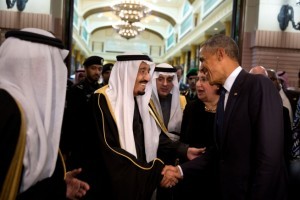

 One would have had to be extraordinarily naive to believe that the U.S. and NATO attacked Libya to “stop genocide and mass atrocities,” as Secretary of State Clinton, NSC advisor Samantha Power and U.N. Ambassador Susan Rice claimed at the time. Or to believe
One would have had to be extraordinarily naive to believe that the U.S. and NATO attacked Libya to “stop genocide and mass atrocities,” as Secretary of State Clinton, NSC advisor Samantha Power and U.N. Ambassador Susan Rice claimed at the time. Or to believe 







